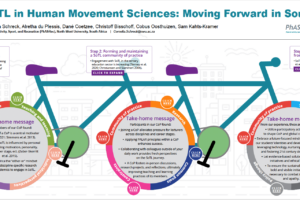Looking Forward to a Conversation between Elizabeth Minnich and Four ISSOTL Members
- Posted by ISSOTL Admin
- Categories Blog
- Date October 18, 2019

Elizabeth Minnich’s plenary at ISSOTL18 in Bergen, Norway, left participants wanting more—wanting to engage with her, ask follow-up questions, hear her continue her thinking and connect to SoTL. Chng Huang Hoon (then ISSOTL Vice President-Asia Pacific) followed up by inviting the ISSOTL community to submit questions for Minnich. She then worked with Minnich and her responses to compile a conversation that is featured in Teaching & Learning Inquiry issue 7.2, coming out in early September.

What follows are the questions—emphases added and excerpted from a more extended dialogue between some of the questioners and Minnich—that frame Minnich’s generous extension of her thoughts to ISSOTL18 participants, and to those who weren’t there.
Your book, The Evil of Banality: On the Life and Death Importance of Thinking, powerfully articulates the harms associated with ordinary people living on thoughtlessness autopilot. However, I am less clear about what it might mean to be thoughtful. What are the features of a thoughtful person capable of forestalling harm? — John Draeger (United States)
[T]oday’s VUCA (volatile, unpredictable, complex, ambiguous) world demands that we teach students how to think and negotiate ethically beyond the university curriculum. How do we teach, without necessarily prescribing a certain manner of thinking? How do we infuse ethics and judgement in light of the onslaught of a rapidly changing world? What do teachers have to focus on most? — Chng Huang Hoon (Singapore)
In The Evil of Banality, you criticize an outcomes focus, also and in particular with regard to education, for example when you write that “we can also suffer from pedagogies that stress ‘outcomes’ rather than the process and practice of thinking.” Could you elaborate on why you think an outcomes-based approach to education is problematic?
How can we who work in higher education counteract and subvert this widespread and potentially dangerous dogma? How might the scholarship of teaching and learning movement, with its emphasis on reflective practice and inquiry into student learning, assist in this endeavor by fostering an ethic of care? — Johan Geertsema (Singapore)
I am mostly interested in the terminology “intensive” and ”extensive” that was used to discuss evil and good. In my ISSOTL18 closing plenary, I used the same terminology in relation to SoTL: Intensive SoTL would mean defined SoTL projects … while Extensive SoTL is rather a SoTL-attitude that permeates everyday life and its interactions. I am seeking feedback on this idea of “intensive” and “extensive” … being used on other aspects of life, like how we in our everyday lives, with its almost infinite number of daily interactions, talk and act in relation to teaching students. — Torgny Roxå (Sweden)
As a member of ISSOTL and reader of TLI, I am interested in how SoTL might help us avoid the kind of banal thoughtlessness that can do great harm. I can imagine, for example, that we might want studies that might uncover how to avoid dangerous pitfalls, encourage better thinking, or mitigate harms. What is the SoTL study that you would most like to see done? — John Draeger (United States)
Look for the full responses and dialogue in “In Conversation with Elizabeth Minnich” in the upcoming issue of TLI.




